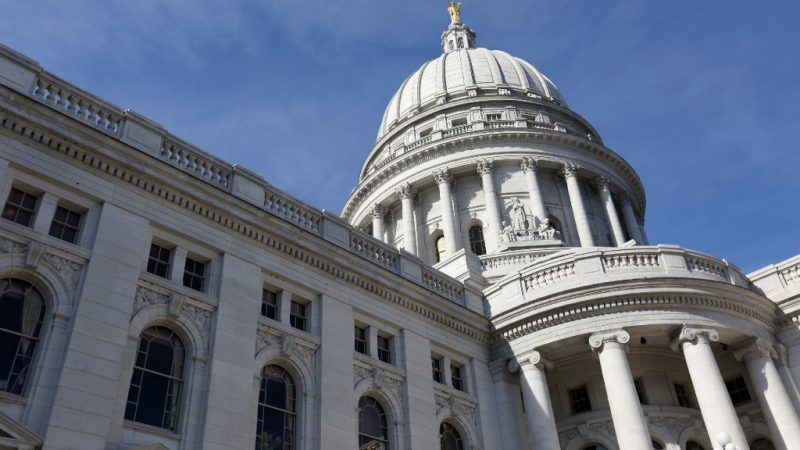Attorney General Josh Kaul and a bipartisan coalition of lawmakers are seeking to pass legislation that would take “a significant step” to prevent a future backlog of untested sexual assault kits.
Flanked by legislators, law enforcement and advocates at the Capitol, Kaul yesterday unveiled a process for collecting and processing sexual assault kits. No such process currently exists in statute, which the DOJ claimed in a release was at fault for “thousands of kits not being submitted to the state crime lab for testing.”
Those untested kits led to a backlog that at its peak numbered nearly 7,000 and became a key campaign issue for Kaul in his race against former AG Brad Schimel last fall.
The bill’s lead author in the Assembly, Rep. David Steffen, R-Green Bay, blasted the “backlogs and bureaucracy” that previously served as a barrier to sexual assault victims seeking justice and pledged his bill would take steps to address it.
>> WisPolitics is now on the State Affairs network. Get custom keyword notifications, bill tracking and all WisPolitics content. Get the app or access via desktop.
“Sexual assault victims deserve a more effective and efficient system than that, and today, we are taking a major step forward in delivering it,” he said.
The proposal gives sexual assault survivors the option to report to law enforcement. Should the victim choose to report the incident, the legislation lays out a clear timeline for medical professionals to notify law enforcement, and for law enforcement to collect the sexual assault kit and send it to the state crime lab for analysis.
Should the survivor choose not to report the incident, the bill creates a process in which the health care professional collects the evidence and sends the kit to the state crime lab for storage for 10 years, or until the survivor decides to report to law enforcement.
Rep. Melissa Sargent, D-Madison, praised the proposal and said that the process “upholds survivors’ dignity” no matter what they choose.
“Not only does this legislation work to create and codify procedure that honors survivors and ensures their ability to have sexual assault kits be collected, processed, and stored in appropriate time frames, but it protects those who do not choose to report at the time of an assault or who change their mind,” she said.
The proposal also won the support of health care professionals, including the Wisconsin chapter of the International Association of Forensic Nurses. Chapter President Jamie Counsell-Baker noted that survivors may be afraid to seek care for a number of reasons and commended the victim-centric approach the bill takes.
“This legislation gives these victims the option to have evidence collected and stored for up to 10 years anonymously,” she said, before also highlighting the immunity protection the bill grants to health care workers involved in the evidence collection process.
Legislative leaders also expressed support for the bill. Senate Majority Leader Scott Fitzgerald tweeted that the proposal represented “a good start” and wrote that Senate Republicans would caucus on the bill “in the coming weeks.”
A spokeswoman for Gov. Evers, meanwhile, promised the guv would sign the bill once it reached his desk.
See the release:
https://www.wispolitics.com/
See the bill:
https://www.wispolitics.com/



